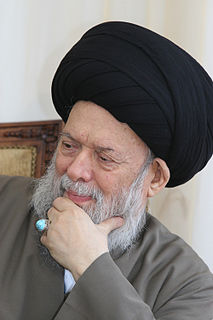A Quote by Ralph Waldo Emerson
Related Quotes
What is the spirituality we need for the 21st century? We face a choice: to retire from this fray into some marshmallow paradise where we can massage away the heat of the day, the questions of the time, the injustice of the age, and live like pious moles in the heart of a twisted world. Or, we can gather our strength - our spiritual strength - for the struggle it will take to wake up from this pious sleep.
Sometimes the public says, 'What's in it for Numero Uno? Am I going to get better television reception? Am I going to get better Internet reception?' Well, in some sense, yeah. ... All the wonders of quantum physics were learned basically from looking at atom-smasher technology. ... But let me let you in on a secret: We physicists are not driven to do this because of better color television. ... That's a spin-off. We do this because we want to understand our role and our place in the universe.
I am not religious, but I am a pious man... A religious man has a definite religion. He says "God is there" or "God is there," "God is there." "Your god is not my god, and that's all." But the pious man, he just looks out with awe, and says, "where is God?" And "well, I don't understand it and I would like to know what this creation really means." That is a pious man, who is really touched by the greatness of nature and of the creation.
When Jesus came to earth, demons recognized him, the sick flocked to him, and sinners doused his feet and head with perfume. Meanwhile he offended pious Jews with their strict preconceptions of what God should be like. Their rejection makes me wonder, could religious types be doing just the reverse now? Could we be perpetuating an image of Jesus that fits our pious expectations but does not match the person portrayed so vividly in the Gospels?










































